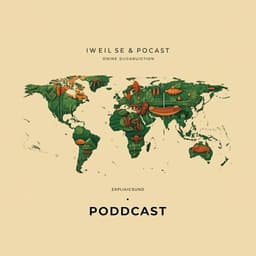
Earth Sciences
Loess deposits in the low latitudes of East Asia reveal the ~20-kyr precipitation cycle
X. Li, Y. Zhou, et al.
Explore the intriguing findings of Xusheng Li and colleagues, who delve into a remarkable 350,000-year record from a loess profile in China. Discover how the East Asian summer monsoon precipitation cycles, influenced by insolation variations, have shaped our climate over millennia. This study reveals the complex interactions between precipitation and temperature in a captivating narrative of Earth's past.
Related Publications
Explore these studies to deepen your understanding of the subject.







